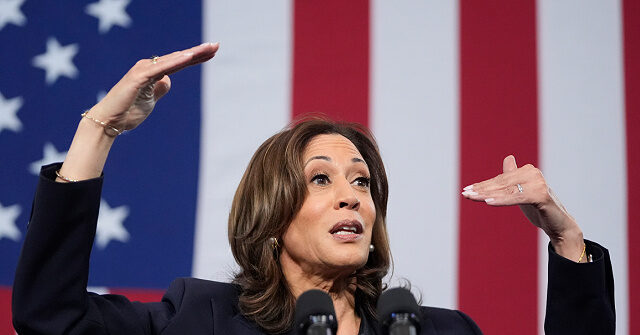During a recent town hall meeting hosted by Univision, Vice President Kamala Harris addressed a pressing issue regarding healthcare access in response to a Department of Defense employee’s experience of waiting years for an MRI. He ultimately sought treatment in Mexico, highlighting the dire state of healthcare access in the U.S. Harris emphasized her belief that healthcare is a fundamental right, not merely a privilege for those with financial means. She underscored the importance of alleviating suffering and demonstrated that empathy should be perceived as a strength, rather than a weakness. Throughout her tenure as Vice President and her long-standing career, she has advocated for strengthening the healthcare system and ensuring broader access to affordable care, linking her commitment to the dignity of individuals and their need for effective healthcare solutions.
Harris pointed out specific achievements in her administration, notably the capping of insulin costs at $35 per month. She illustrated this with a personal anecdote from a woman in Las Vegas who received much-needed relief when her mother’s insulin prescription became financially manageable. This change is not just a statistic for Harris; it represents real lives improved through government action. Moreover, she emphasized her intention to extend these benefits beyond seniors, proposing that the capping of prescription medication costs would be available to all Americans, reinforcing her belief that healthcare access should not be dictated by income or socioeconomic status. Her proactive approach toward prescription drug pricing reflects an agenda that prioritizes health equity and accessibility.
The Vice President contrasted her healthcare policies with those of her likely Republican opponent, former President Donald Trump. She made a pointed remark regarding Trump’s history with healthcare, citing attempts to dismantle the Affordable Care Act (ACA) on approximately 60 occasions during his presidency. This historical context serves to frame Harris’s narrative as a defender of healthcare reforms that have helped millions of Americans gain access to necessary medical services. She also referenced “Project 2025,” Trump’s proposed healthcare agenda should he be re-elected, encouraging listeners to research it for a clearer understanding of the implications it could have for the American healthcare system.
Throughout her remarks, Harris maintained a strong focus on the principle that healthcare is a collective right, emphasizing that leaders have a moral obligation to provide care for all citizens. Empathy, as she articulated, plays a crucial role in shaping policy that addresses not just the fiscal aspects of healthcare, but also the human experiences tied to illness and suffering. Her depiction of healthcare as a non-negotiable public right resonates with many who see personal struggles reflected in broader systemic failures, and she advocates for an approach that acknowledges these realities. By connecting policy changes to individual stories, Harris aims to humanize the often abstract discussions surrounding healthcare systems and their inadequacies.
Furthermore, Harris’s commitment to healthcare reform speaks to the larger Democratic narrative around social equity and justice. By focusing on capping drug costs and enhancing access for underprivileged populations, she positions herself as a champion for those often left behind in discussions of healthcare policy. Her advocacy for extending prescription drug cost caps to everyone, not just seniors, illustrates a long-term vision for a healthcare system that works for every citizen, thus appealing to a diverse electorate. This approach not only addresses immediate needs but also seeks to establish a more sustainable and equitable healthcare framework for the future.
Ultimately, the town hall underscored a pivotal campaign point for Harris as she seeks the Democratic presidential nomination in 2024. By contrasting her vision for healthcare with that of Trump, and framing it within the broader context of rights and dignity, she aims to rally support from voters who prioritize healthcare as a critical issue. Drawing on personal stories and highlighting specific policy achievements allows her to connect emotionally with constituents, fostering a sense of trust and urgency around her healthcare agenda. As the election approaches, proposals like capping insulin costs and expanding affordable care continue to resonate deeply with voters, emphasizing the need for systemic change in the American healthcare landscape.

